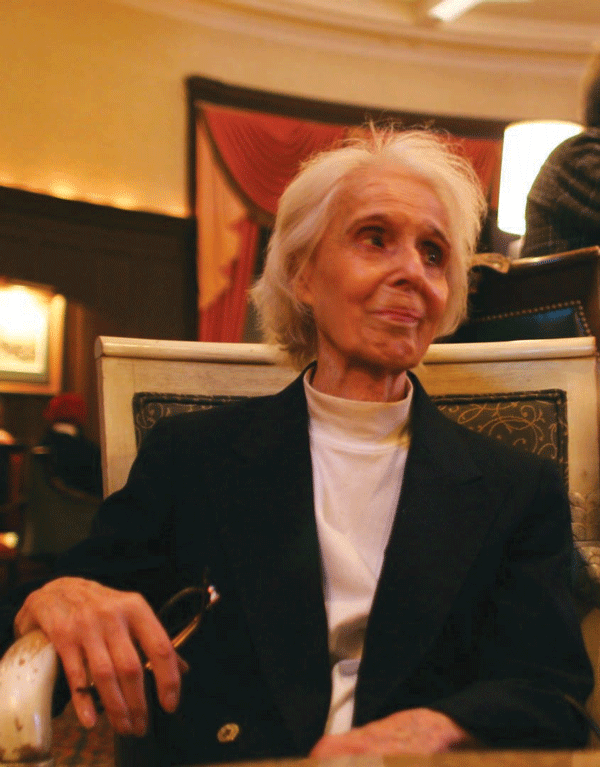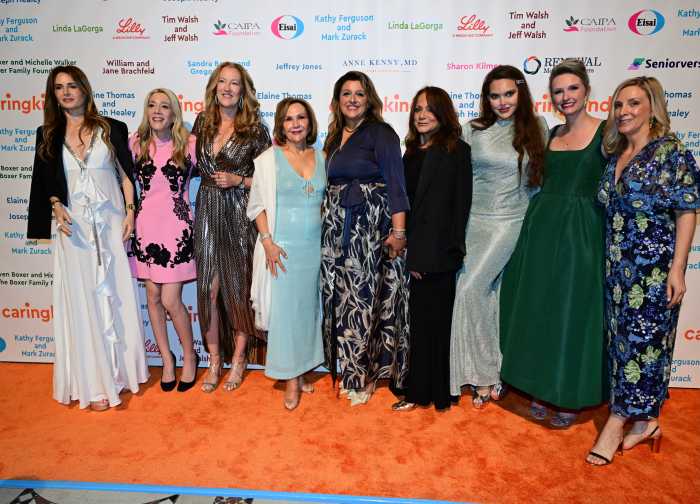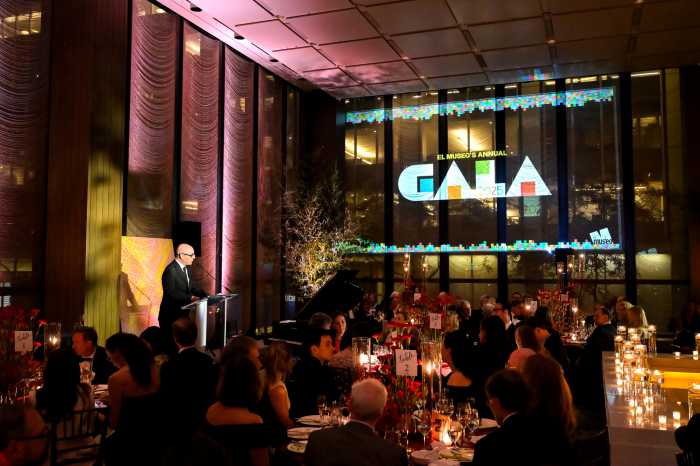BY ALBERT AMATEAU | Florence Otway, a preeminent designer of women’s shoes who, with her husband, Howard, founded Theatre 80 St. Mark’s, died June 15 at the age of 94.
At her July 15 memorial at Theatre 80, her son Lorcan screened a documentary film that he made three years ago about her. It was a life that spanned the Prohibition era, the Great Depression, World War II and the teeming years of the past half-century.
“She died of complications of Alzheimer’s, but she never forgot the important things,” said Lorcan, the owner and director of Theatre 80. “She remained with her family in the apartment above the theater and recognized us until the very end.”
Born the daughter of Romanian and Russian immigrants who had moved from E. 11th St. in Manhattan to the Grand Concourse in the Bronx, Florence Kirschen was admitted to The Cooper Union as an art student in 1936 when she was 18.
The daughter of a politically conservative family, Florence’s bent was to the left.
“She helped organize a ‘welcome home’ rally for the Abraham Lincoln Brigade at the end of the Spanish Civil War,” Lorcan said. He added that it began a lifetime of involvement in progressive causes.
After Florence graduated in 1940, she landed a job at I. Miller, a maker of women’s shoes, as an artist, and soon advanced to designer, an unusual promotion for a woman in those days.
When the United States entered World War II, I. Miller began manufacturing parachutes for the government.
“My mother noticed that an elderly woman on the production line had a piece of tape on one hand and ran it along a seam of the parachute she was working on,” Lorcan recalled. “She told the foreman and together they discovered a razor in the tape and exposed the woman as a saboteur. My mother won an award for that.”

During the war, Florence volunteered at the U.S.O. (a social and entertainment agency for members of the armed services), Lorcan said. Through that connection, she became friends with a producer who invited her out to Hollywood for a visit. There, she met and fell in love with Howard Otway, an actor, writer and playwright. They married and moved in 1947 to Greenwich Village, where they lived in a Jane St. apartment and kept open house for sundry friends and colleagues.
“My father had a job with Doubleday, the publisher, at the time and became acquainted with a fellow employee, a Belgian by the name of Paul de Man [who later achieved fame as a distinguished literary theorist],” Lorcan continued. “In fact, de Man lived with my parents until he had a falling out with my father.”
De Man, who died in 1985, was exposed after his death as a Nazi collaborator in Belgium during the war.
Around 1950, Howard Otway bought a rural retreat in Westchester County and moved his family and entourage there.
“My father wrote in a small studio on the property, and he and my mother played host to a series of international visitors,” Lorcan said. “My mother learned to cook Pakistani food from the wife of a visiting diplomat and Chinese food from a Chinese visitor.”
Around the same time, Florence’s reputation as a shoe designer made her a byword in the industry.
“Florence was a preeminent designer, widely regarded as one of the best in an era of great American footwear design,” Nancy Shapiro, a former editor of Footwear News, said in an obituary in that trade publication.
Maggi Mercado, a prominent shoe designer, said, “She was one of very few women in the industry and a mentor to younger people and other women.
In 1950, Florence joined Palizzio, a New York firm, as a designer and catalogue illustrator. Two years later, she began working as a freelance illustrator for Bernardo and Bally of Switzerland. Other high-profile firms for whom she designed included Genesco, David Evins, Garolini, Calvin Klein and Adrienne Vittadini.
In the mid-1970s, while working for the shoe firm Golo, Florence had the idea of making waterproof boots out of a new fabric, Gore-Tex.
“She set out to convince Arthur Samuel, owner of Golo, on the idea, and he finally agreed,” said Lorcan. “The boot became a big success. My mother loved to tell about the huge blizzard that winter, and everywhere you walked you could see ‘Golo’ imprinted in the snow. It was wonderful.”
Meanwhile, in 1963, Howard Otway wrote a play, “This Here Nice Place,” and decided to produce it himself. He bought a Prohibition-era speakeasy at 80 St. Mark’s Place, near First Ave., and proceeded to convert it into a 199-seat Off Broadway theater, with living quarters for his family upstairs.
Theatre 80 became a cultural nursery for plays and dance, a temporary home to Robert Ossorio’s Manhattan Ballet, the venue of the hit mini-musical “You’re a Good Man Charlie Brown,” and the place where actors like Robert De Niro, Sally Kirkland and Billy Crystal got their start.
Florence, in the midst of raising two children and juggling a career that involved travel to shoe manufacturing sites in Europe and Latin America, added the role of theatrical assistant. It wasn’t such a big leap.
“After all, her first cousin was Edward G. Robinson,” Lorcan noted.
In 1990, Florence retired as a shoe designer and became a full-time associate of Theatre 80. Her husband died in 1994 and Lorcan took over as director of the theater.
Lorcan said his mother had survived a bout of cancer in the 1980s.
“She made me promise never to lie to her about her health or mental condition. She wanted to be in control as much as possible,” he said.
In addition to Lorcan, another son, Thomas Otway, and two grandchildren also survive.




































